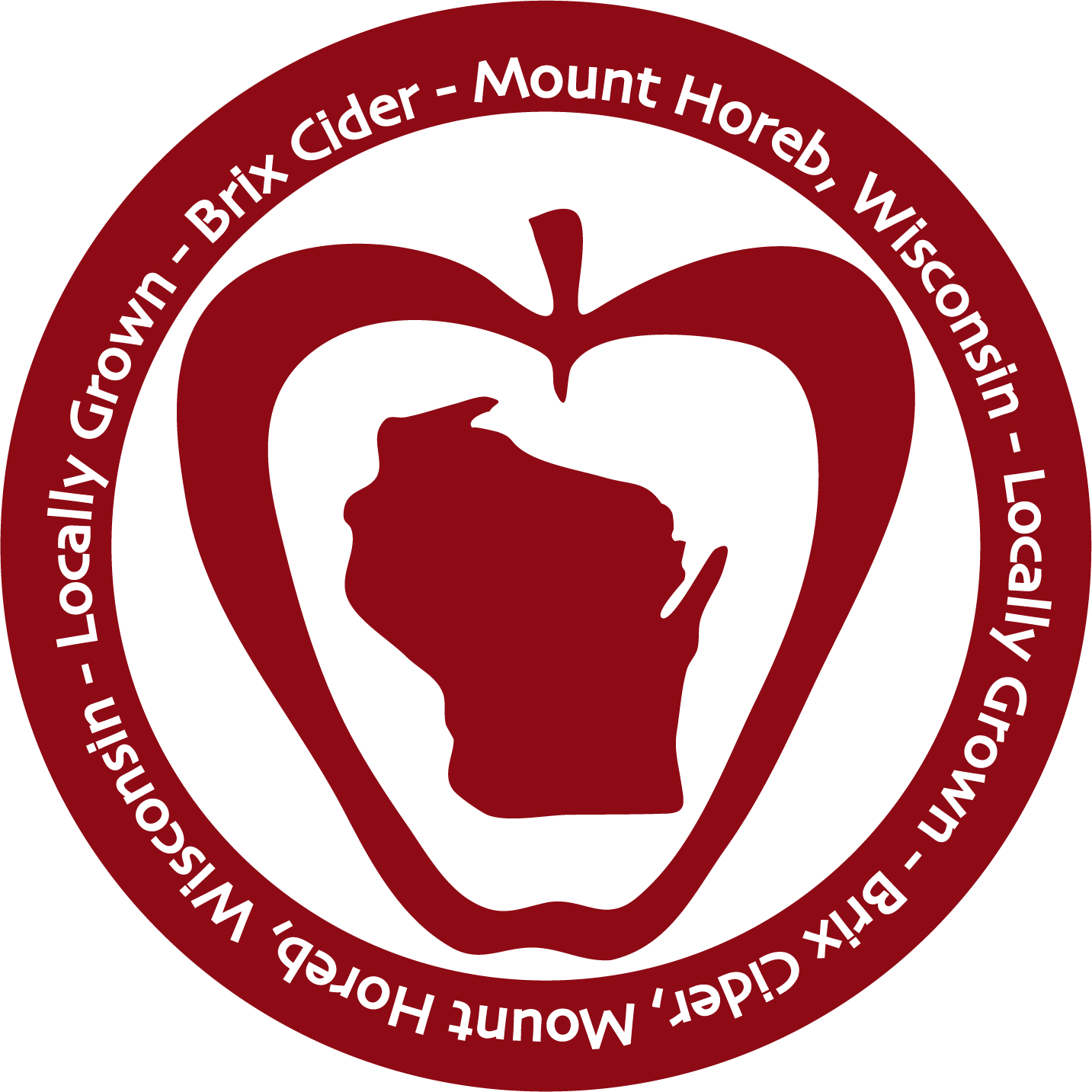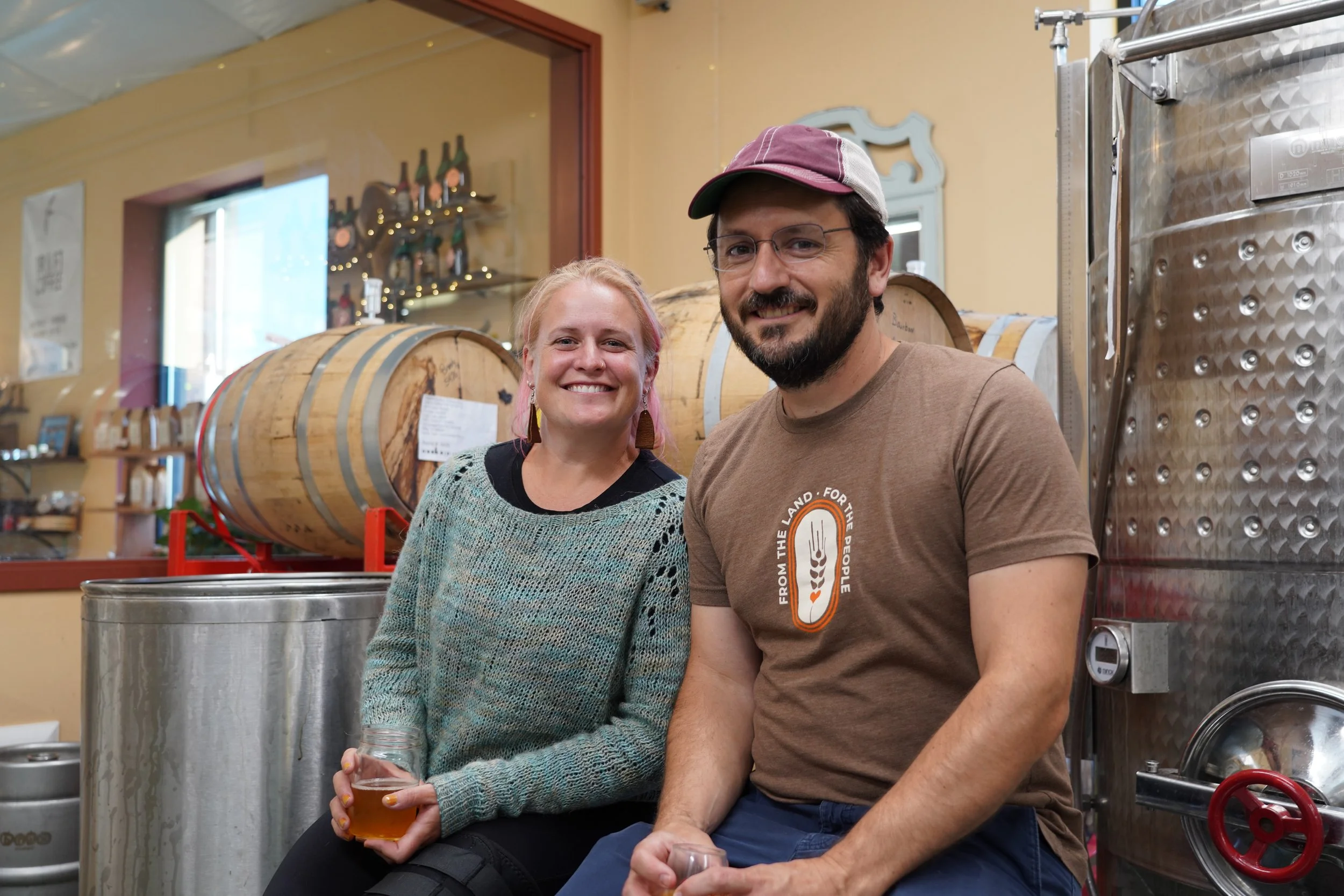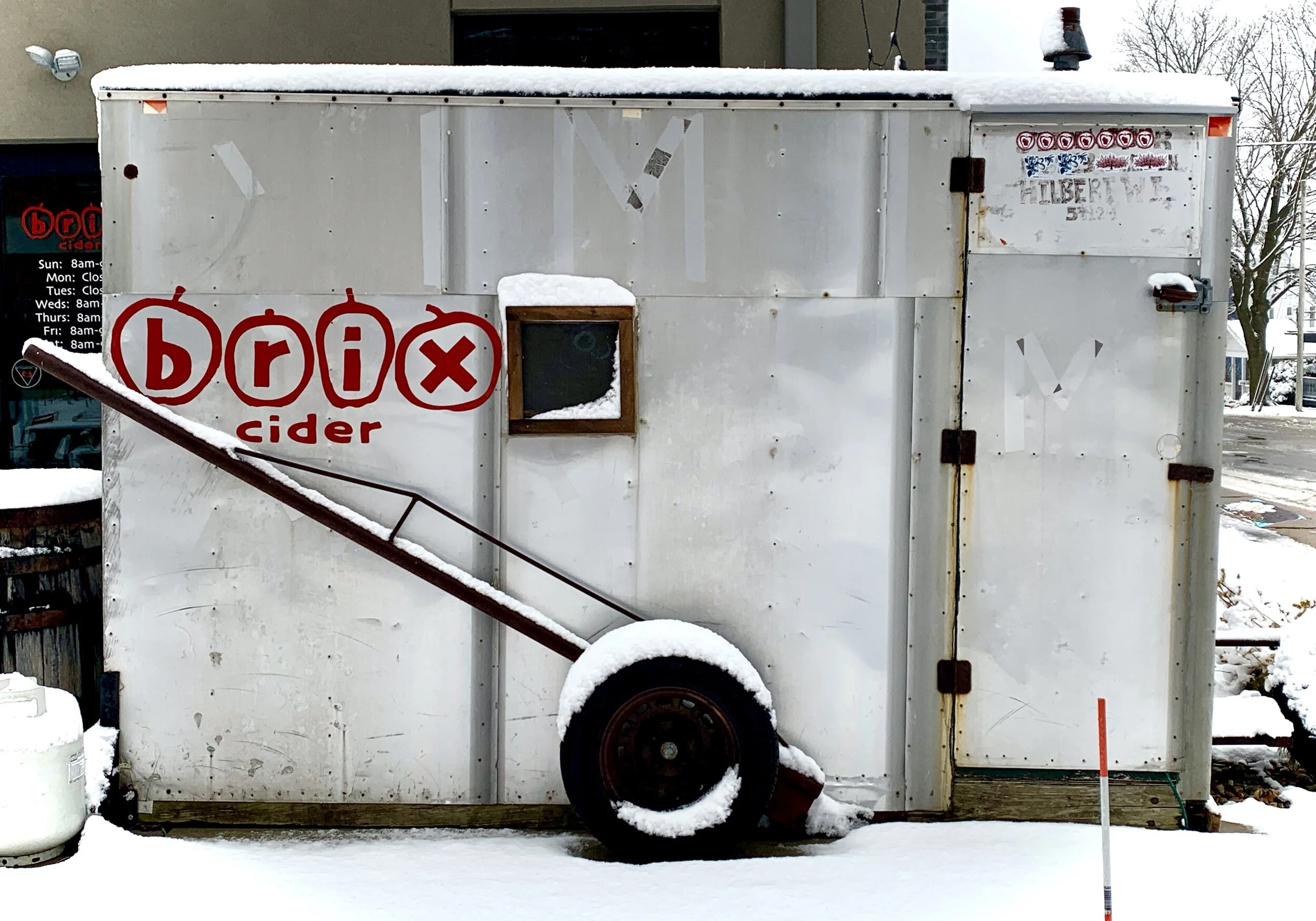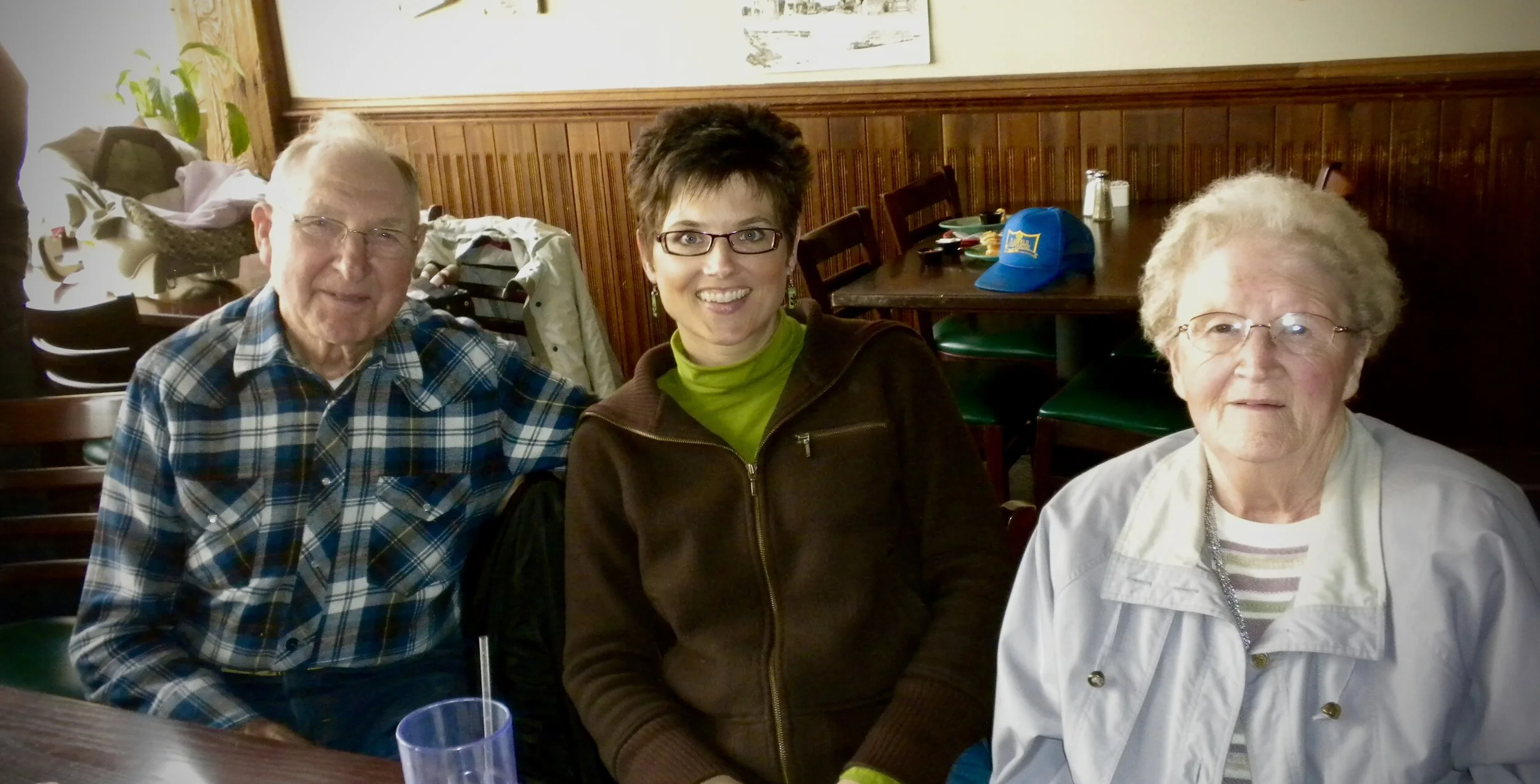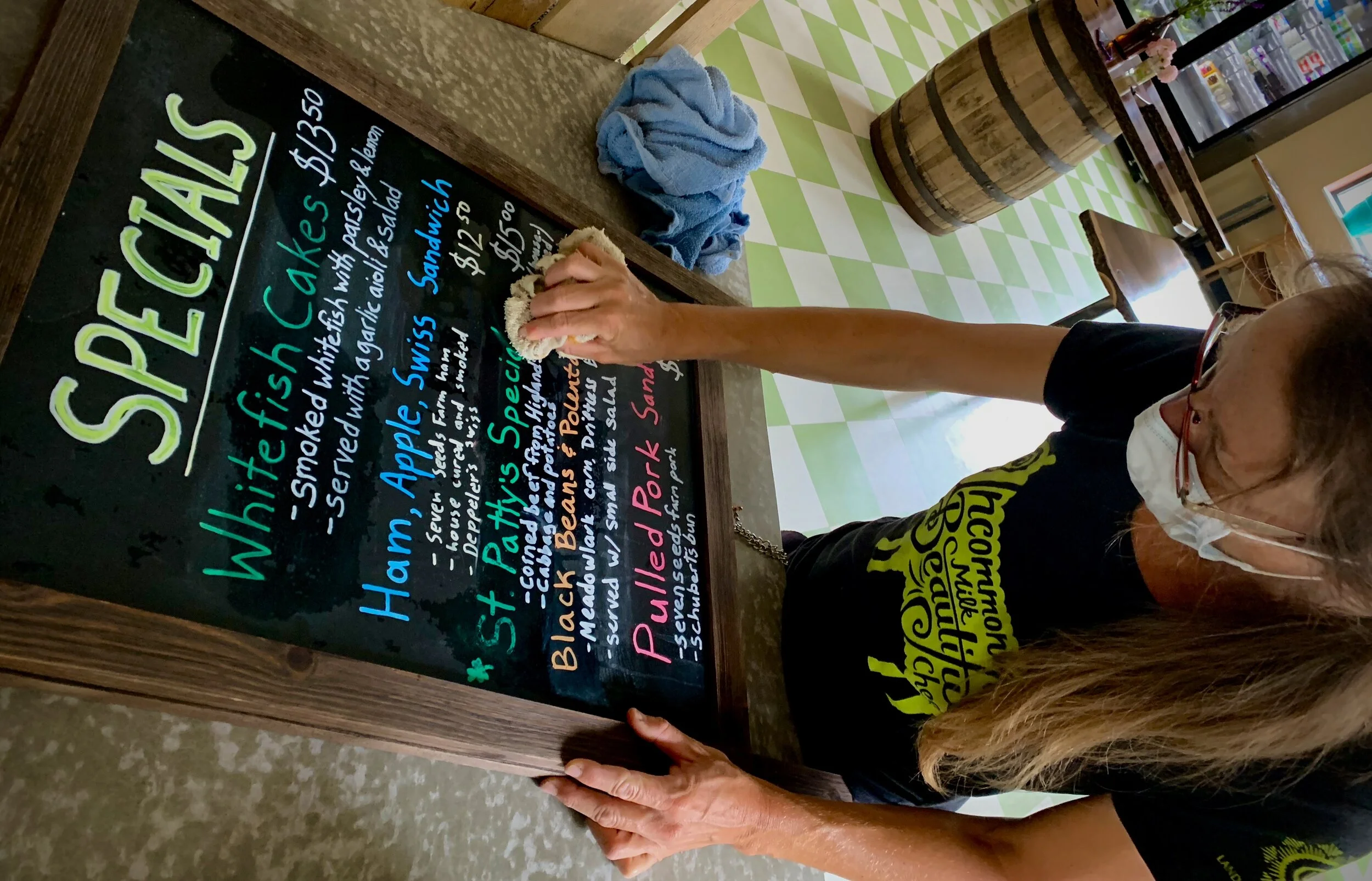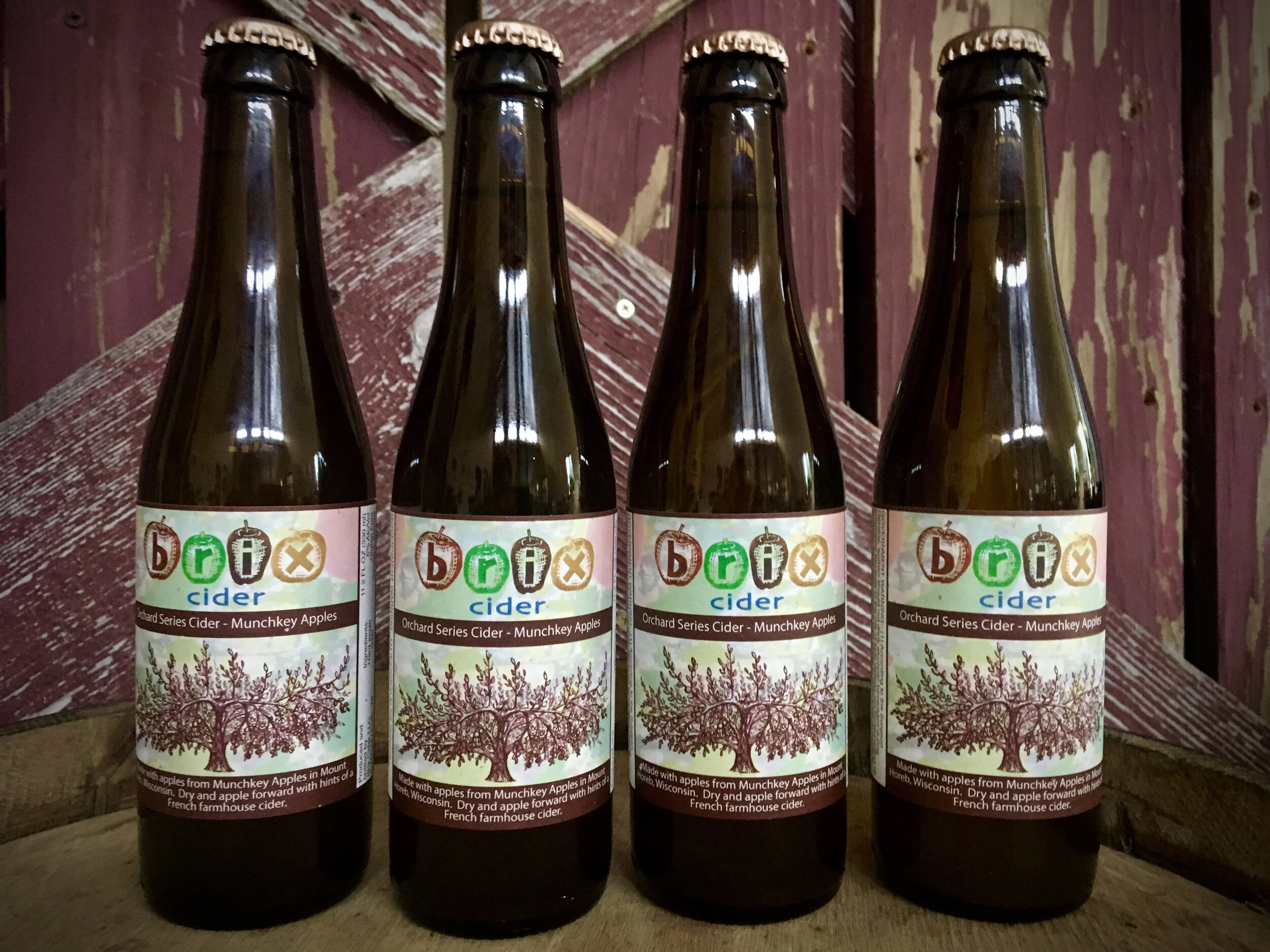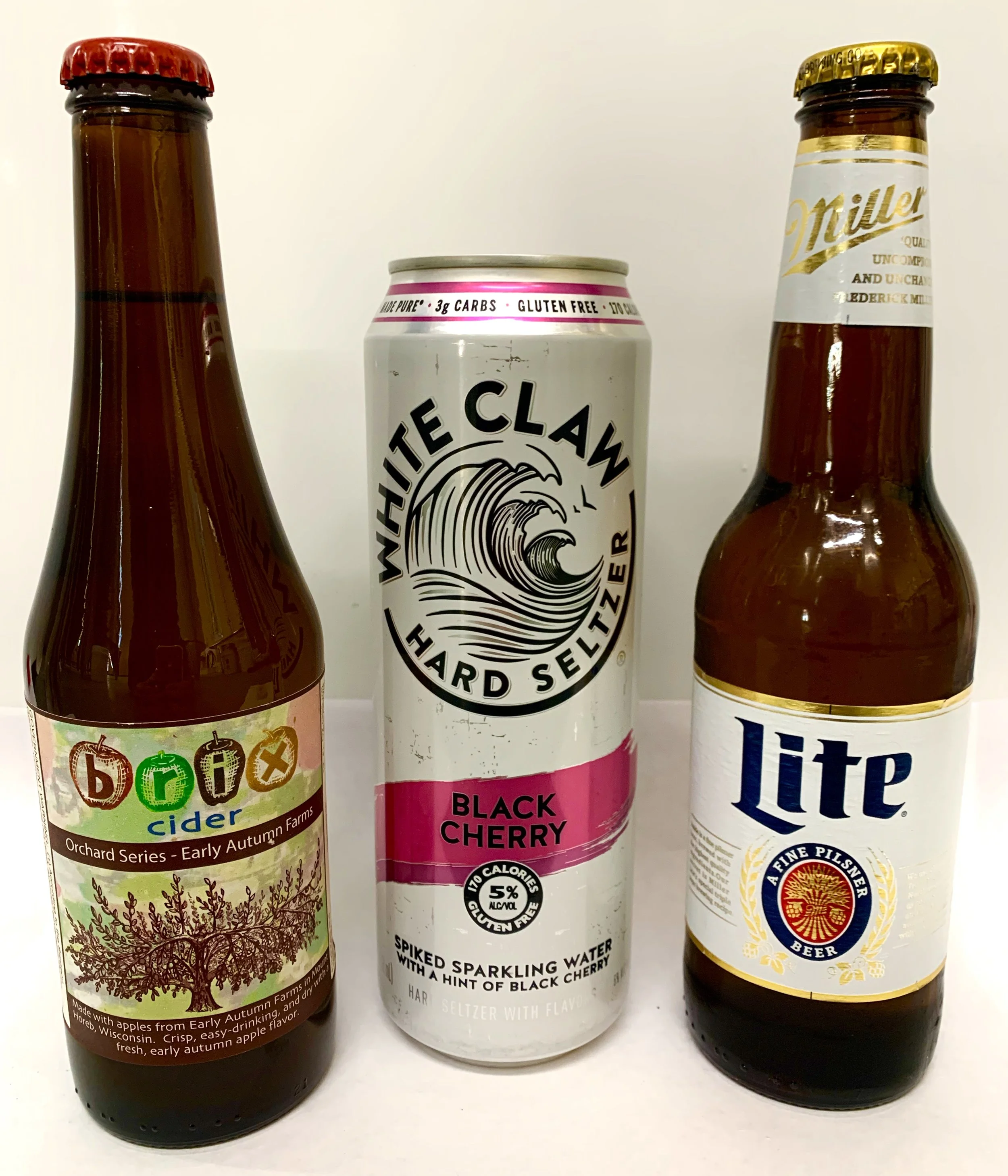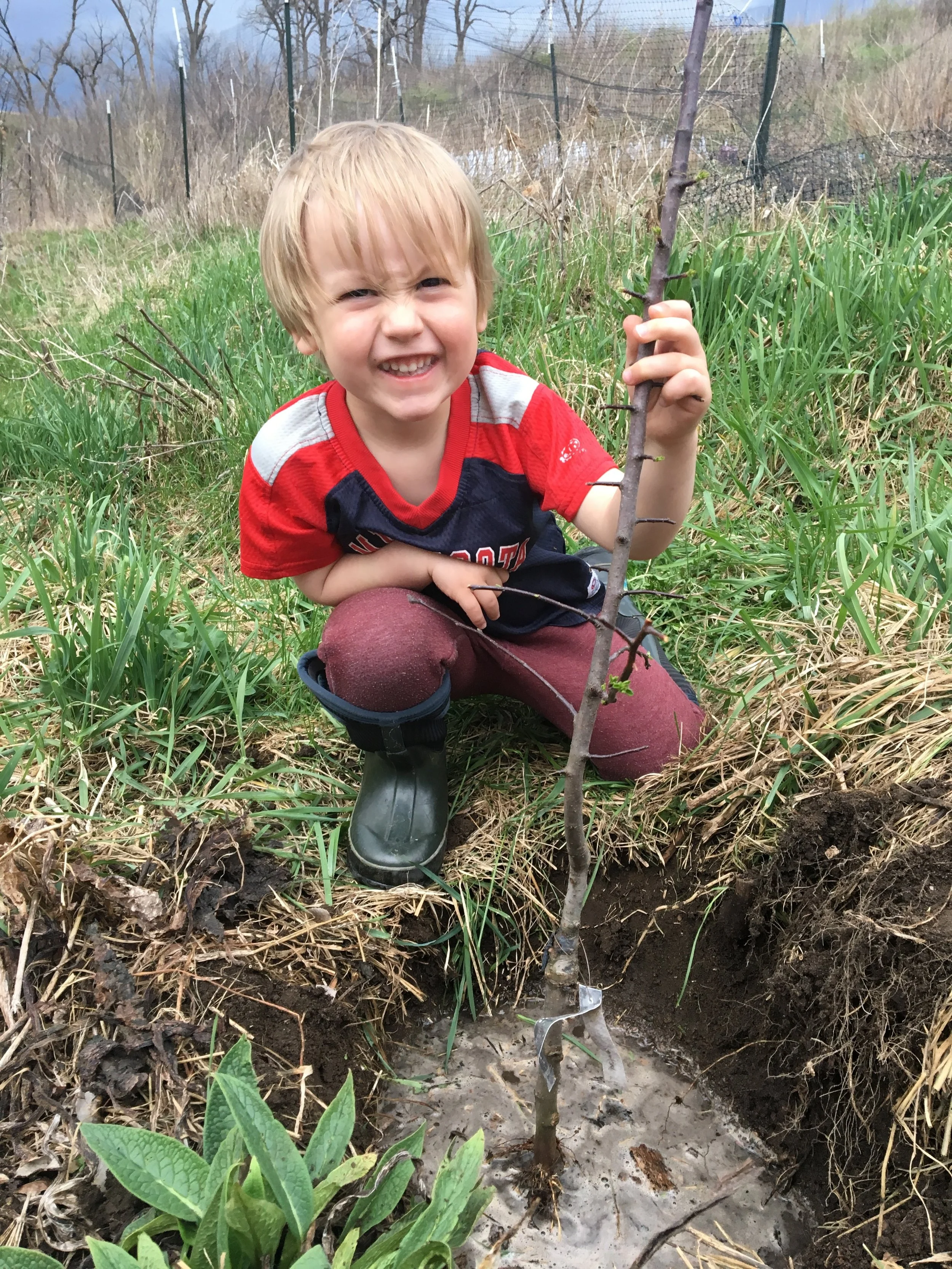Zero Emissions Cider!

This past fall, we had the idea that we wanted to create a “Zero Emissions Cider” wherein our efforts to make the cider wouldn’t add any CO2 emissions to the atmosphere. That is much easier said than done. A careful accounting would find CO2 emissions everywhere. The people who used their energy to pick the apples ate food that used fossil fuels when it was grown and transported. The building the cider was made in uses fossil fuels to be heated in winter and cooled in summer. The equipment the cider was made in was manufactured using fossil fuels. The list could go on and on, and it’s pretty hard to have no carbon footprint at all.
That said, there are things that pull carbon out of the atmosphere. Most notably, in this case, the choice of land use makes a big difference. A field that’s tilled using heavy machinery year after year is likely to lose a lot of carbon to the atmosphere, and if you use that crop to then feed an animal that people will eat, the carbon footprint gets pretty big. However, if you plant a field like that to an orchard where you maintain year round ground cover in the understory, you may well push the needle in the other direction and sequester some carbon, pulling it out of the atmosphere. Accurate carbon accounting can be very complicated.
For our Zero Emissions Cider we decided to focus on two important things: where the ingredients come from and how they were transported to Brix. In our day to day lives, these are some of the most important climate change-related decisions we can make - where our food comes from and how we transport ourselves from place to place.
The apples for the Zero Emissions Cider came from Early Autumn Farms, just outside of Mount Horeb. We can feel pretty good about the apples themselves coming from an agroecosystem that’s not emitting carbon into the atmosphere.
To transport our apples, we rode bikes. We hauled the apples from Early Autumn Farms, down the Military Ridge Trail to Brix Cider, one bushel at a time.
We used some electricity to grind and press the apples, and the cider did ferment in a heated facility. We therefore did create a few emissions. We originally planned to purchase an official carbon offset to keep our emissions at zero. However, some quick research of carbon offset programs didn’t lead us to any programs we were in love with (that doesn’t mean that there aren’t great programs out there, because I’m sure there are). Instead we decided to make a donation to an organization that we know locally, The Savanna Institute. They may not sell carbon offsets, but organizations like the Savanna Institute can help push the needle in the right direction on climate change by supporting more regenerative farming practices.
We are releasing our Zero Emissions Cider on Earth Day, and we’ll also have Open Mic starting at 5:30 on April 22nd. To make the cider even more carbon neutral, we hope you walk to Brix or ride your bike along the Military Ridge Trail to come enjoy it here with us. Cheers!
